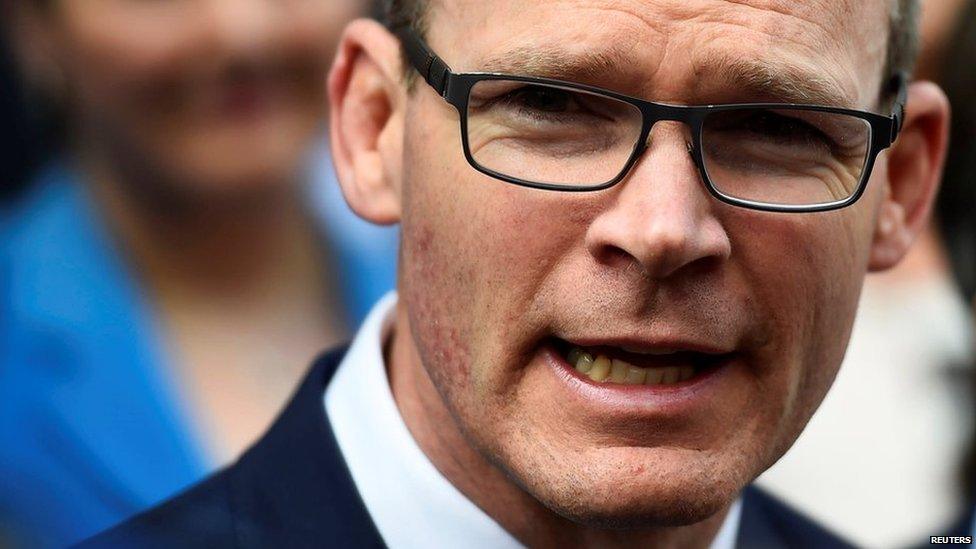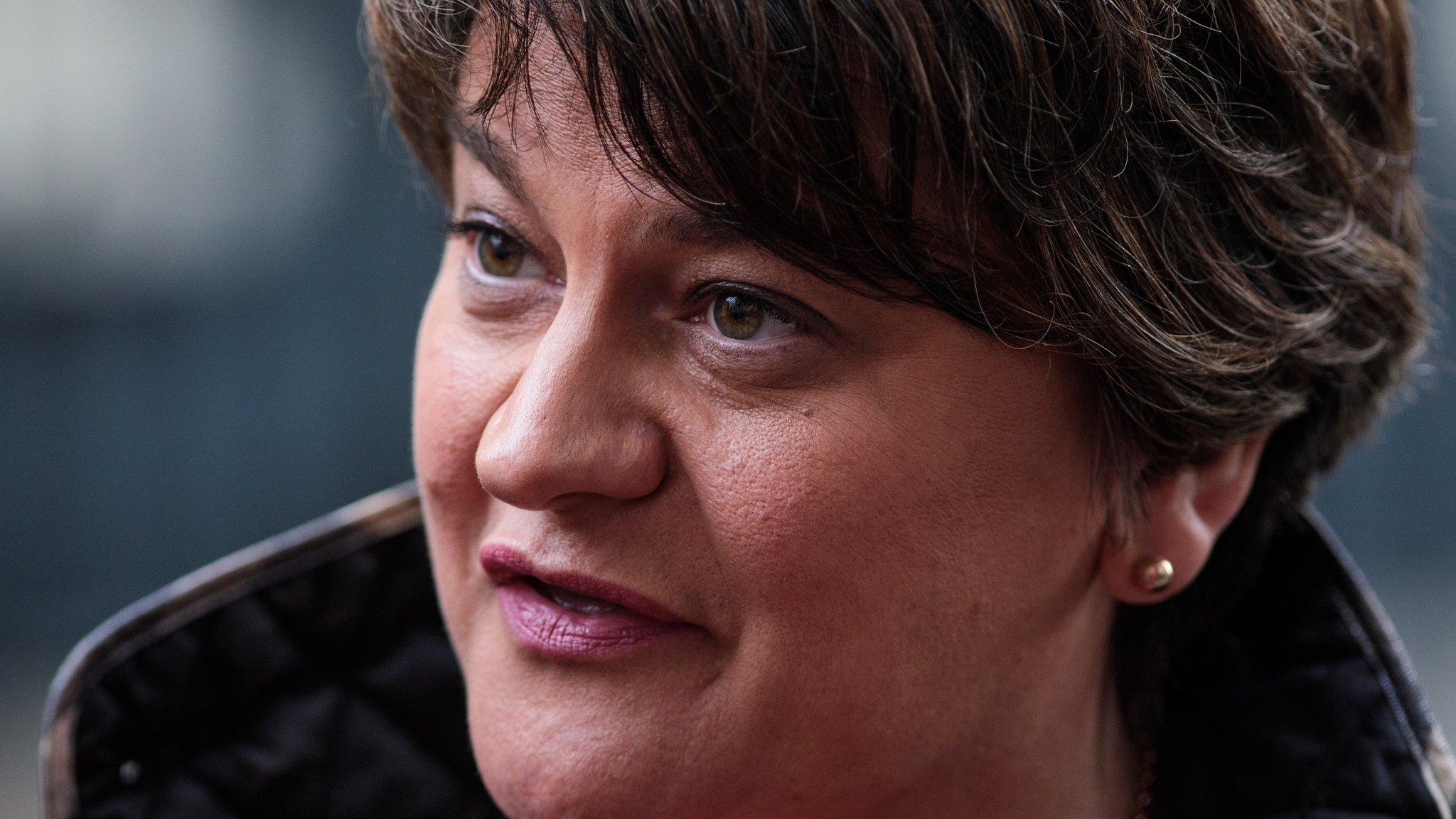Coveney rejects DUP's 'reckless' claims
- Published
- comments

Simon Coveney said the Irish government was asking hard questions
The Irish foreign minister has rejected claims his government is being reckless with Northern Ireland over Brexit.
Simon Coveney said: "We are asking the hard questions and unfortunately we are not getting credible answers."
He said this was why "some people seem to be uncomfortable".
Mr Coveney would not respond directly to complaints by DUP leader Arlene Foster, but said Dublin had been consistent on Brexit, stressing that its position had not changed.
On Tuesday, Mrs Foster said Irish Prime Minister Leo Varadkar "should know better" than to "play around" with Northern Ireland over Brexit,
She accused Mr Varadkar of being "reckless" as Brexit talks entered a "critical phase".
DUP leader attacks EU over Brexit talks
Speaking in north Belfast, Mr Coveney said people were beginning to realise the Irish government and the EU were insisting on "credible answers" on how they were going to deal with the Irish border question and were not getting them.
He said: "We do not want the relationships between Ireland and Britain - and in particular the relationships on the island of Ireland - to go backwards, and if there is regulatory divergence between the two jurisdictions on the island of Ireland in my view that creates real problems.
"We certainly are not seeking to exploit anything. We are trying to protect a peace process which so many people from all backgrounds, unionist and nationalist have worked so very hard to create."
Clear foundation
The foreign minister said the Good Friday Agreement provided a very clear foundation for a peace process and an all-island economy.
"It is the British negotiating team that has put 141 different examples of north-south co-operation on the table," he added.
Mr Coveney said the negotiations were "teasing through" these issues to ensure the maintenance of the Good Friday Agreement post-Brexit.
He said it was because of these negotiations, "that we are seeing the complexity and difficulty of doing that if there is any regulatory divergence north and south."
- Published21 November 2017

- Published21 November 2017